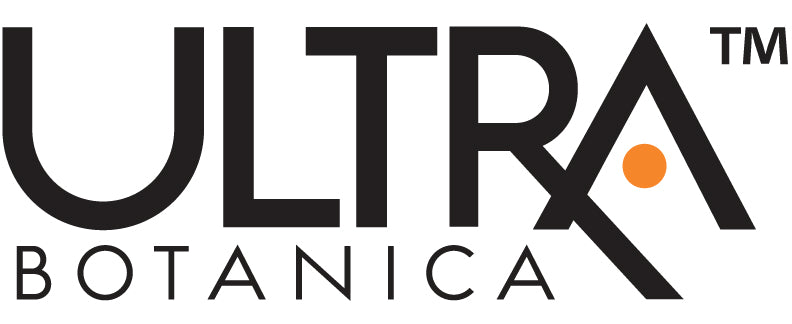Building a strong natural immune defense is like building a fortress for your body to fight infections. It’s a complex system that protects you from harmful bacteria and viruses.
We often think about our immune systems when we feel sick, but true immune strength comes from consistency. Nourishing our bodies, managing stress, and making healthy lifestyle choices offers a powerful natural immune defense.
Especially in the middle of winter, when everyone is cooped up indoors and illness seems to be everywhere.
How Your Immune System Works: Innate and Adaptive
Your immune system fights germs on the skin, in bodily tissues and in bodily fluids.
The system is comprised of the innate immune system, which is general in nature, and the adaptive (or specialized) immune system. They work closely together but carry out different tasks.

The Innate Immune System: Fast and General
Your first response against intruders comes from the innate system, which reacts super fast. But the innate immune system doesn’t always stop germs from spreading.
The reason is that some pathogens mutate quickly, and others have evolved mechanisms to escape detection by hiding within host cells or creating a biofilm to hide.
The Adaptive Immune System: Direct and Specific Combat
If a threat gets past the innate immune system, the adaptive (specialized) immune system takes over. The adaptive system targets the specific type of germ causing the infection. But to do that, it must first recognize the germ type.
This makes for a slower response while it’s identifying the germ, albeit a more accurate one. In addition, the adaptive immune system “remembers” germs it has fought in the past. So, if the germ reappears, the adaptive system can start fighting it faster.
That’s why you get some illnesses only once in life and after that your body is “immune” to them… but you may not even realize the threat.
Foundations of Natural Immune Defense
Think of your immune system as an army. It needs regular supplies, like micronutrients and sleep, to function properly. Just like any army, the immune system needs a steady supply of various resources to be most effective.
The Importance of Sleep for Natural Immune Defense
Getting enough high-quality sleep isn’t just about feeling rested. It’s crucial for natural immune defense. Studies show that adults who don’t get enough sleep are more likely to get sick. Four times likely, according to a University of California study.
Sleep deprivation weakens immune cell function and allows viral infections to take hold and linger. When you’re sick, sleep also helps your immune system fight the illness effectively and recover more quickly.

Power Up With Plant Foods: Boosting Immunity Naturally
Fueling your body with a variety of colorful plant-based foods—such as fruits, vegetables, nuts, seeds, and legumes—provides essential vitamins, minerals, and antioxidants that strengthen immune function.
These nutrient-dense foods help activate and support key immune cells, including natural killer (NK) cells and dendritic cells, which play a crucial role in identifying and fighting off harmful invaders.
Plant foods also contribute to a healthier gut microbiome. A well-balanced gut supports the production of beneficial bacteria that help protect against pathogens, regulate inflammation, and strengthen the body’s ability to fend off infections.
By incorporating more plant-based foods into your diet, you’re giving your immune system the natural boost it needs to keep you healthy and resilient.
Harnessing Healthy Fats
Consuming the right kinds of fats is essential for overall well-being and a strong immune system.
Consume healthy fats and avoid harmful ones—such as partially hydrogenated oils and highly processed seed oils. It can make a huge difference in your health.
Enjoy nutrient-rich sources like olive oil, real butter, and salmon to nourish your body with beneficial fatty acids.
Embrace Fermented Foods for Gut and Immune Health
Gut bacteria and your immune system are closely linked. Your gut microbiome plays a crucial role in recognizing and fighting off harmful disease-causing bacteria. Regularly consuming fermented foods helps balance (or rebalance) your gut microbiome.
While more research is needed on specific fermented foods and probiotics like Bifidobacterium animalis, there are indications they support immune health. Consider adding yogurt, kimchi, sauerkraut, kefir, and natto to your diet.

Sugar’s Impact on Immune Response
Sugar weakens your natural immune defense. Studies link added sugar to obesity, which increases the risk of flu, even after vaccination.
Conditions like type 2 diabetes and heart disease, often associated with high-sugar diets, also destroy immune health. Reducing sugar intake can improve immune function by lowering inflammatory responses and aiding weight management.
Keeping your sugar consumption within recommended limits helps strengthen your natural immune defense. What are recommended limits? Well, that’s a topic of some controversy.
But a 2021 study showed that scaling back carbs and sugar to essentially zero — in other words, a ketogenic diet — improved T-cell activity against immune threats. T-cells are part of your adaptive immune system.
Alcohol Weakens Immune Response
Alcohol also has been shown to weaken the immune system. It weakens physical barriers of entry such as the skin and mucous linings of the respiratory and GI tracts, allowing pathogens an easier track into the body.
In addition, alcohol inhibits T cell and B cell function in the adaptive immune system, and makes your body work harder to form memories of pathogens it has previously fought.
As if that wasn’t enough, alcohol reduces white blood cell function, which identifies and destroys pathogens.
Boost Immunity with Regular Exercise
Regular exercise can significantly improve natural immune defense. Exercise benefits cardiovascular health, helps manage stress, makes you sleep better, and directly impacts immunity.
It works by supporting inflammation response, promoting production of key immune cells, and aids overall immune regeneration.
Aim for at least 150 minutes of moderate-intensity activity weekly, such as brisk walking, swimming, cycling, or other preferred exercises, to support your immune health. Or alternatively, 75 minutes of intense exercise.

Hydration: The Unsung Hero of a Strong Immune System
Proper hydration is crucial for immune support. Water strengthens natural immune defense indirectly by improving overall health. Dehydration causes headaches, fatigue, and impairs cognitive function.
Increase fluid intake during intense exercise or outdoor activities, especially in hot weather. During the dead of winter, you’ll probably have to discipline yourself to drink water.
Pale-yellow urine indicates proper hydration (in the absence of B vitamins, which will turn urine bright yellow).
Choose water or unsweetened tea to limit your sugar intakes. While fruit juice and sweetened teas provide fluids, their high sugar content can decimate your immune system.
Manage Your Stress
While psychological stress is a normal part of life, chronic stress weakens natural immune defense in both adults and children.
High stress levels hinder immune responses and contribute to inflammation, impacting even a child’s immunity significantly. Build stress-reducing practices in your daily life, like yoga, exercise, relaxing hobbies, and journaling.
Promising Nutrients for an Immunity Boost
Want to help your natural immune defense? Many nutrients give your body a helpful nudge. They can help your body fight off those nasty bugs and keep your productivity at its peak. Let’s talk about the key players.

Vitamin D3
Vitamin D3 is an important nutrient for natural immune defense. This vitamin acts like the director for your immune system. It tells different parts of the system what to do, including how to respond to threats.
Many people are vitamin D3 deficient, especially during winter months when it’s cold and you’re sequestered inside. The sun is the primary source of vitamin D3 besides dietary supplements. So most people will be deficient during the winter if they don’t supplement with vitamin D3.
Vitamin D can be obtained from sunlight exposure, a little from fatty fish like salmon and mackerel, egg yolks, fortified dairy products, and finally, supplements. Your doctor can test your vitamin D levels to see if they’re in the optimal 60 to 80 range.
Zinc
Zinc is essential for a strong immune system, helping immune cells communicate and coordinate attacks against harmful germs. It helps T-cell function, supports the inflammation response and protects cells from free radical damage.
Since the body’s need for zinc increases during stress or illness, maintaining adequate levels is crucial. A zinc deficiency can weaken immune defenses, making you more susceptible to infections.
To support immunity, include zinc-rich foods like oysters, beef, chicken, pumpkin seeds, lentils, and chickpeas in your diet, or consider supplements if needed.
Quercetin
Quercetin is a natural antioxidant found in many fruits (apples), vegetables like onions, and grains, offering valuable support for the immune system. By neutralizing free radicals, it helps protect cells from damage and contributes to overall health.
One of its key benefits is supporting a balanced inflammatory response, which is essential for maintaining strong immunity.
Quercetin also promotes gut health by protecting beneficial bacteria, enhancing nutrient absorption, and strengthening natural immune defenses.
Finally, quercetin plays a role in stress management, helping to mitigate the negative effects of prolonged stress on the immune system.
Foods rich in quercetin include apples, berries, red onions, broccoli, kale, grapes, and green tea. Incorporating these into your diet can naturally boost quercetin levels, although supplements are also available.

Curcumin
Turmeric, the bright yellow spice that gives curry its color, is also a powerhouse for immune health, thanks to its active compound, curcumin.
This potent antioxidant helps protect cells from damage caused by free radicals, strengthens immune defenses and promotes overall health. Curcumin also supports a balanced inflammatory response, ensuring the immune system functions efficiently.
It may even help fight infections and speed up recovery when you’re sick, making it a valuable addition to any wellness routine. To increase curcumin intake, add turmeric to soups, stews, stir-fries, or smoothies.
For enhanced absorption, consider curcumin supplements with absorption boosters like Protisorb™ protein absorption technology.
Since curcumin is fat-soluble, take it with a healthy fat for better uptake. As always, consult your doctor before starting any new supplement.
NAC: Precursor to Glutathione
Boosting natural immune defense involves a complex system of cells and processes working together, and one key player is glutathione—a powerful antioxidant known as the “master antioxidant.”
It protects cells from damage, supports detoxification, and plays a crucial role in immune function. N-acetyl cysteine (NAC) is a supplement that acts as a precursor to glutathione, providing the building blocks needed for its production.
Since glutathione levels naturally decline with age due to stress, poor diet, and environmental toxins, supplementing with NAC helps maintain optimal levels, strengthening immune defense and the body’s ability to fight infections.
Beyond immune support, NAC also promotes respiratory health by thinning mucus and making it easier to clear—especially beneficial during cold and flu season. It works by breaking down disulfide bonds in mucus, aiding people with respiratory conditions.
The recommended NAC dosage typically ranges from 600-1200 mg per day, but individual needs vary. Consult a doctor before starting NAC, particularly if you have underlying health conditions or take medications.
Olive Leaf Extract
For centuries, people have used the olive tree for more than just its delicious fruit and oil. They have also used its leaves for health. Today, we can get the benefits of olive leaves in a concentrated form called olive leaf extract.
This extract is packed with a compound called oleuropein. This is what gives olive leaf extract its unique power. Oleuropein is thought to be responsible for many of olive leaf extract’s amazing benefits, such as its antioxidant properties.
Olive leaf extract can help your body’s natural immune defense. But olive leaf extract doesn’t stop there. Some studies show that it may help keep your blood pressure healthy. It might even help keep your blood sugar levels stable.
Although more research is needed, oleuropein is promising for people looking for natural ways to support their well-being and a healthy immune system.
So, how can you add olive leaf extract to your routine? It typically comes in liquid or capsule form. You can find it at many health food stores or online.
It’s always a good idea to talk to your doctor before starting any new supplement. This is especially true if you’re taking other medications.
Olive leaf extract is a natural way to support your health. Although it has shown promising results in boosting the immune system, it’s not a replacement for medical treatment.
UltraDefense™
Many of these powerhouse ingredients are combined into a convenient all-in-one UltraBotanica product called UltraDefense™, whose purpose it is to support your immune system… whether during the middle of the winter, or any time.
UltraDefense™ contains vitamin D3, NAC, curcumin, zinc, olive leaf, and quercetin, with enhanced absorption provided by the Protisorb™ protein scaffold technology.
This simply means that the complex is delivered to your cells via a protein scaffold that your body easily recognizes as food.

Vitamin C
Vitamin C is well-known for its immune-boosting power, but how does it actually work?
This essential nutrient plays a crucial role in immune function by helping the body produce more white blood cells, which act as soldiers defending against viruses and bacteria.
It also enhances the function of other immune cells, such as phagocytes, which engulf harmful invaders, and lymphocytes, which produce antibodies to target and destroy infections.
Beyond supporting immune cell production, vitamin C also protects cells from damage caused by free radicals—unstable molecules that are produced when the body fights infection.
Since vitamin C is water-soluble and the body neither produces nor stores it, daily intake is essential.
You can get vitamin C from foods such as citrus fruits (oranges, grapefruits), berries (strawberries, blueberries), kiwi, bell peppers, and dark leafy greens like spinach and kale. But you’d have to eat a lot of those foods to equal what a meaningful vitamin C dose would be if you’re getting sick.
Many people turn to vitamin C at the first sign of a cold. While it may not prevent colds entirely, research suggests that regular intake can shorten the duration and lessen the severity of symptoms.
Elderberry
Elderberry has been used for centuries as a natural remedy for colds and flu. This dark purple berry is packed with antioxidants. These help protect your cells from damage.
Some studies show elderberry can reduce the severity and duration of cold and flu symptoms. But more research is needed to confirm these benefits.

Probiotics
Probiotics are good bacteria that live in your gut. They help support many bodily functions, including your immune system and mental health. A healthy gut is critical for a strong immune system, because most of your immune system lives in your gut.
Probiotics help balance the bacteria in your gut. You can find probiotics in fermented foods like yogurt, kefir, kimchee, and sauerkraut. Probiotics are also available as supplements.
Garlic
Garlic is more than just a flavorful kitchen staple—it’s also a powerful supporter of natural immune defense. Used for centuries for its health benefits, modern science is uncovering why.
This potent bulb contains compounds like allicin, which may help strengthen the body’s defenses.
Allicin, a sulfur-containing compound released when raw garlic is chopped or crushed, gives garlic its distinct smell and is believed to have antimicrobial and antioxidant properties.
Some research suggests garlic may help reduce the severity and duration of colds, though it’s not a cure-all. Instead, it plays a supportive role in overall immune health.
Incorporating garlic into your diet is simple.
Roast it, add it to stir-fries, blend it into sauces, or, for the highest allicin content, use it raw. Freshly chopped garlic can enhance meals and may offer additional immune support—though its strong taste can be intense. Of course, garlic is available as a potent supplement as well.
Conclusion
Supporting your natural immune defense is an ongoing journey. By incorporating healthy habits into your daily routine, you can strengthen your immune system and improve your overall well-being.
As you learn, adapt, and make positive changes, your immune system responds, enhancing its ability to protect you.
In this post, we’ve covered several practices for boosting your natural immune defense—such as eating nutrient-rich foods, staying active, getting quality sleep, staying hydrated, and reducing sugar and alcohol intake.
By focusing on holistic immune support, you not only safeguard against illnesses but also lay the foundation for long-term, whole-body health. Strengthening your immune defense is a multifaceted process that benefits every aspect of your well-being!

Frequently Asked Questions
What lifestyle priorities boost my immune health?
To boost immune health, prioritize a nutrient-rich diet, regular exercise, quality sleep, and hydration. Aim for 30 minutes of moderate exercise most days to improve circulation and inflammation responses.
Sleep 7-9 hours per night for proper immune cell regeneration and function. Stay hydrated to help your body transport nutrients and eliminate toxins. Manage stress through activities like meditation or enjoyable hobbies.
What are some key nutrients that boost immune health?
Key nutrients that boost immune health include zinc, vitamin C, vitamin D3, curcumin, NAC, glutathione, elderberry, garlic, probiotics, and quercetin.
Zinc supports immune cell function and communication, while vitamin C boosts white blood cell production and fights free radical damage. Vitamin D3 enhances immune cell activity and plays a critical role in immune response.
Curcumin helps supports a strong immune defense. NAC acts as a precursor to glutathione, which is essential for detoxification and immune function.
Elderberry is known for its potential to reduce cold severity and duration, and garlic has antimicrobial properties that support immune health.
Probiotics improve gut health, which plays a key role in immunity, and quercetin supports inflammation and immune function.
For added support, supplementation with UltraDefense™ can provide a comprehensive blend of many of these nutrients to help strengthen and protect the immune system.
What popular foods and beverages can decimate immune function?
Certain foods and beverages can negatively impact immune function, particularly those high in refined sugars, unhealthy fats, processed ingredients, and alcohol.
Excessive sugar, found in sugary drinks, candies, and baked goods, can suppress white blood cell function, making it harder for the body to fight infections.
Alcohol, particularly when consumed in excess, impairs immune cell function, disrupts gut health, and lowers the body’s ability to fight off germs. Reducing or eliminating these foods and beverages from your diet can help support a stronger immune system.





Share:
Essential Heart Health Tips for a Stronger Tomorrow
Enhance Winter Joint Health: Strategies for Joint Comfort